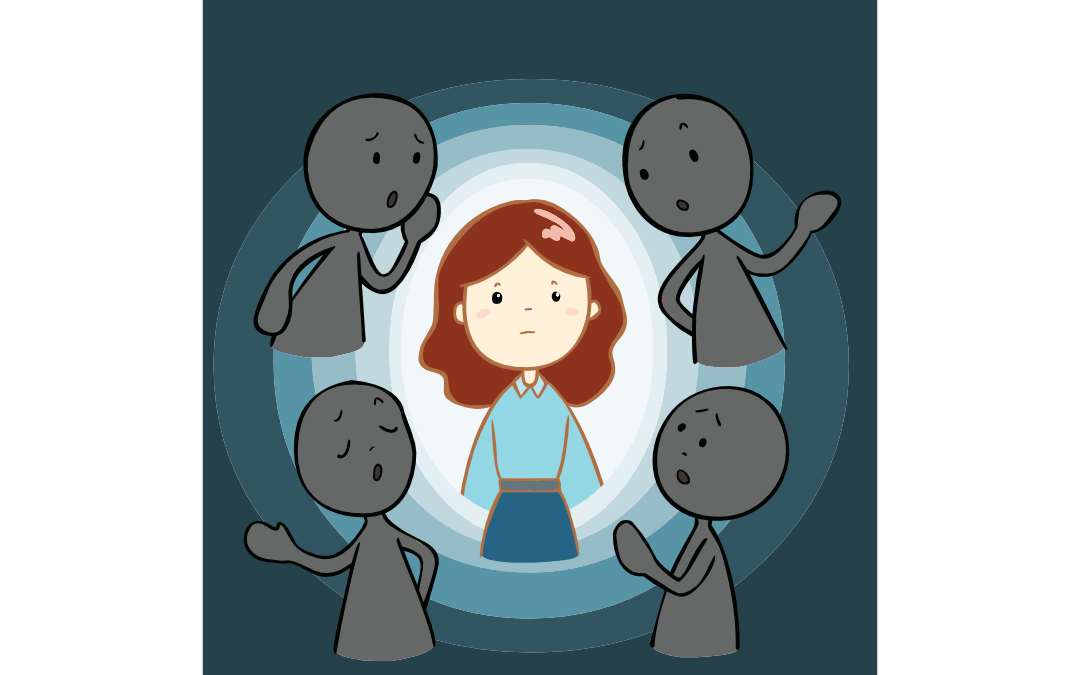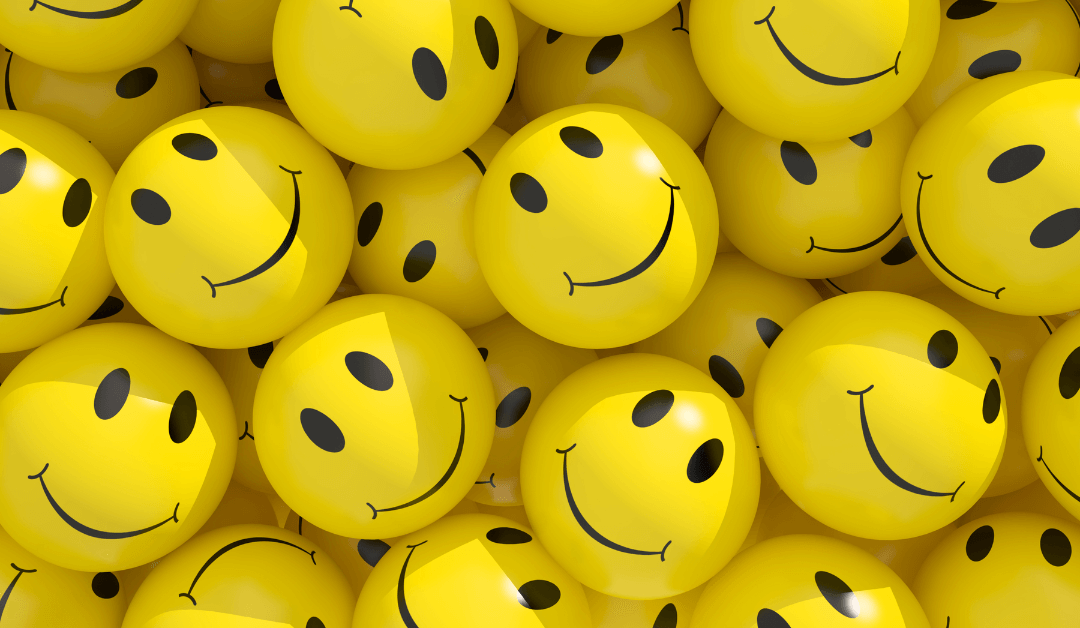What is there to say about happiness? We love it! We strive for it and miss it when it’s gone. We wait whistfully for it’s return or buy stuff/repeat actions/cling to people who made us happy in the past to get the emotion back.
While clinging to things from our past to re-live happiness rarely works, the idea that happiness is within reach is right. It’s an emotion and managing happiness is a Life Skill. You can absolutely learn and practise being happy every day for the rest of your life.

Happiness is an emotion
When was the last time you skipped over a meadow? Or through a cornfield? If nostalgia for your childhood is welling up, hold that thought. If you believe you haven’t been that happy in years, definitely hold that thought!
Yes, we skipped as children because we felt happy. But skipping also made us feel even happier! Emotions are not a one-way street. They are complex interactions between your brain and your body. They are physical reactions that can be triggered by events, thoughts and actions.
Find yourself a convenient meadow and/or field and skip for a minute. I dare you to keep a straight face! It’s impossible. Why? Because the action triggers memories of happiness and those are more than enough to trigger the emotion (= chemical reaction) of happiness. Movement also adds to the pile of dopamine and before you know it you’re laughing out loud.
The obvious secret
Actions trigger emotions. Awesome. We all love actions. We’re raised to worship actions. Actions are so much easier to control than thoughts anyway so… awesome. Let’s take some happy actions.
What exactly are those? Skipping? It is hilarious and I can definitely recommend giving it a try even if you have to find yourself a deserted piece of wood at 5 am before the dog walkers turn up. But there are other easier and even more effective actions you can take.
The secret to happiness is like most things in life remarkably simple: Do what you want as often as you possibly can. That’s it. Now go forth into the world and enjoy your happy life.
Why are you still here reading this post? Because being happy really is that simple. But it’s not that easy. I bet your mind was already shouting all kinds of protests at you (or me) when you read the sentence above. Resistance, other people and habits are making doing what we want difficult.

Resisting happiness
To be clear, you are not resisting the emotion happiness. You are resisting the concept of “doing what you want to do.” A lot of us have been convinced that we can’t just do what we want. We can’t just move to another country or leave our job without three backup plans, or just travel for a year.
These can’ts are limiting beliefs people repeat because they’ve heard them all their lives themselves. Limiting beliefs are lies. I’ve done all the can’ts I just listed. Repeatedly.
But resistance goes even deeper than this. We won’t even allow ourselves to do what we want when we really really could. How many times do you eat what you want? Do you sleep as long as you want to sleep? And do you use the bathroom as soon as you want to?
When was the last time you even dared start a sentence with “I want…” and allowed yourself to finish it? Boldly, unapologetically and without feeling guilty or ashamed? It’s a harmless sentence, yet we won’t even allow ourselves to talk about our wants. Why’s that?

Let’s blame others
I want to go back to this question for a sec: “Do you use the bathroom as soo as you want to use it?” If my wording tripped you up, good. I should have written “need” here, shouldn’t I? But I didn’t for a reason. Wants and needs are the same. The distinction between the two is completely arbitrary and learned.
It’s this distinction that started our issues in the first place because it allows other people and eventually ourselves to sort impulses into two categories: acceptable and unacceptable. Needs are acceptable, or at least, excusable and understandable. You’re allowed to go to the bathroom.
But wants? You better have a long list of good reasons for wanting that, missy! And then proof that you deserve it! You’ve got to be good before you can have what you want. Right?
What does being good even mean? Usually, whatever the person who taught you this rule finds acceptable. They didn’t know any better. They were taught the same nonsense.
What would really happen if you allowed yourself to do anything you wanted to do? Would you ever get any work done? Are you afraid that you might not? That’s because you were taught to feel this way. So you tell yourself that you can’t do what you want to ease that fear.
The negativity habit
Before you know it, you’re making every decision from a place of fear. Why won’t you stop work for two minutes and use the bathroom? Because you’re afraid that you will lose your momentum, focus, or possibly even your job.
Why don’t you take that year off for travel even though you could afford it? Because the economy is bad. No one you know personally has done it before. And what about all those horror stories on social media? Fear, fear, fear.
Over time, you get so used to ignoring that inner voice that always knows exactly what you want and need that it becomes really quiet. So you treat it as white noise, use it to beat yourself up (“If you were deserving you would have already gotten what you wanted!”) or just tune it out completely.
Just like that signal to use the bathroom. It’s still there you just got so good at ignoring it, you barely notice it until your bladder is almost bursting. Your wants and needs are always there, waiting for you to practise hearing them again.

Happiness is a skill
Children are very good at being happy because that’s what we were born to be. It’s our natural state. As we grow up, we get happiness trained out of us and then diligently practise misery. We are taught to ignore our wants and even needs. Worse, we are taught that we don’t even know what we want and to distrust ourselves.
Anything you have ever learned can be unlearned. You can learn to trust yourself again, to hear that voice clearly, and most importantly to listen. Happiness is a Life Skill you practise every single day until you are so good at it that it becomes a part of who you are.
Ever met one of those “happy people”? Those people who seem to float through life with a smile on their face? Those people who always get to do what they want? They are happy because they do what they want as often as possible. And that can absolutely be you too. All it takes is a little practice.
How to be happy
Start small with an action that’s doable and that you can practise every single day. For example, pick one meal a day when you allow yourself to actually eat what you want. No guilt, no shame. Just eat that pizza or the expensive salad or drink the fancy coffee. Yes, every single day!
If this example does not work for you, pick something else. Go to the bathroom whenever you want to go. Immediately. Not after you finished that e-mail. Not after you’ve cleaned your entire apartment and finally deserve to pee. Just go.
Or take a two minute break away from your laptop as soon as you feel a tinge of frustration. Or send the person you want to talk to a silly message whenever you feel like it. Pick one small thing that feels easy to do and practise it for a few days.
If you think these examples are ridiculously simple and won’t make a difference, try doing them for a week. Watch how often you fall off the wagon because of resistance, people and old habits. Don’t beat yourself up about it, though. It’s alright. You are becoming consistently happy.
That’s a big change, no matter how ridiculously small the steps seem to be. Falling every now and then is part of the process. It gives your brain the opportunity to adjust. You want to learn how to walk before you can skip.
Just keep going. Once you are so good at listening to your want, try another one for a few days. Then another one. Before you know it, that voice telling you exactly what you want to do, be and have will be loud and clear again. Always listen. Act as often as you can.

Why the small stuff matters
Why would it make such a big difference if you use the bathroom whenever you want to or drink that fancy coffee? Or say no when your annoying “friend” asks you to meet? Or get some fresh air in your lunch break?
Emotions trigger chemical chain reactions in our bodies. They influence how our brains work, what we think and how we think. Emotions are cumulative, meaning it’s not about the strength of an emotion. It’s about frequency. The more often you feel happy, the happier you become.
Some people also call these smaller instances of happiness joy. If you are more comfortable with that word, go for it. Anything that gives you joy, makes you happy, or gives you pleasure counts.
Build your happy life by listening to your wants and acting on them as often as possible. You learned how to be miserable. Happiness is our natural state and going back to it is easier than you think. Just start small and keep going. Re-build your trust in yourself and practise happiness every day.
Before you know it, you’ll be daring people online to skip over meadows because you’re just so happy you want that for them too. Happiness is a piece of cake. Speaking of which… I have a sugar-free apple cookie I want to eat right now. What about you? What do you want to do?
